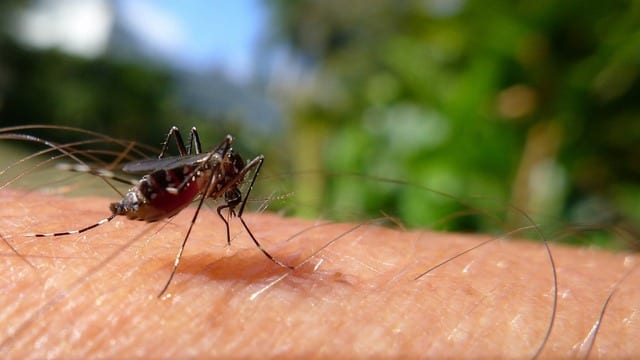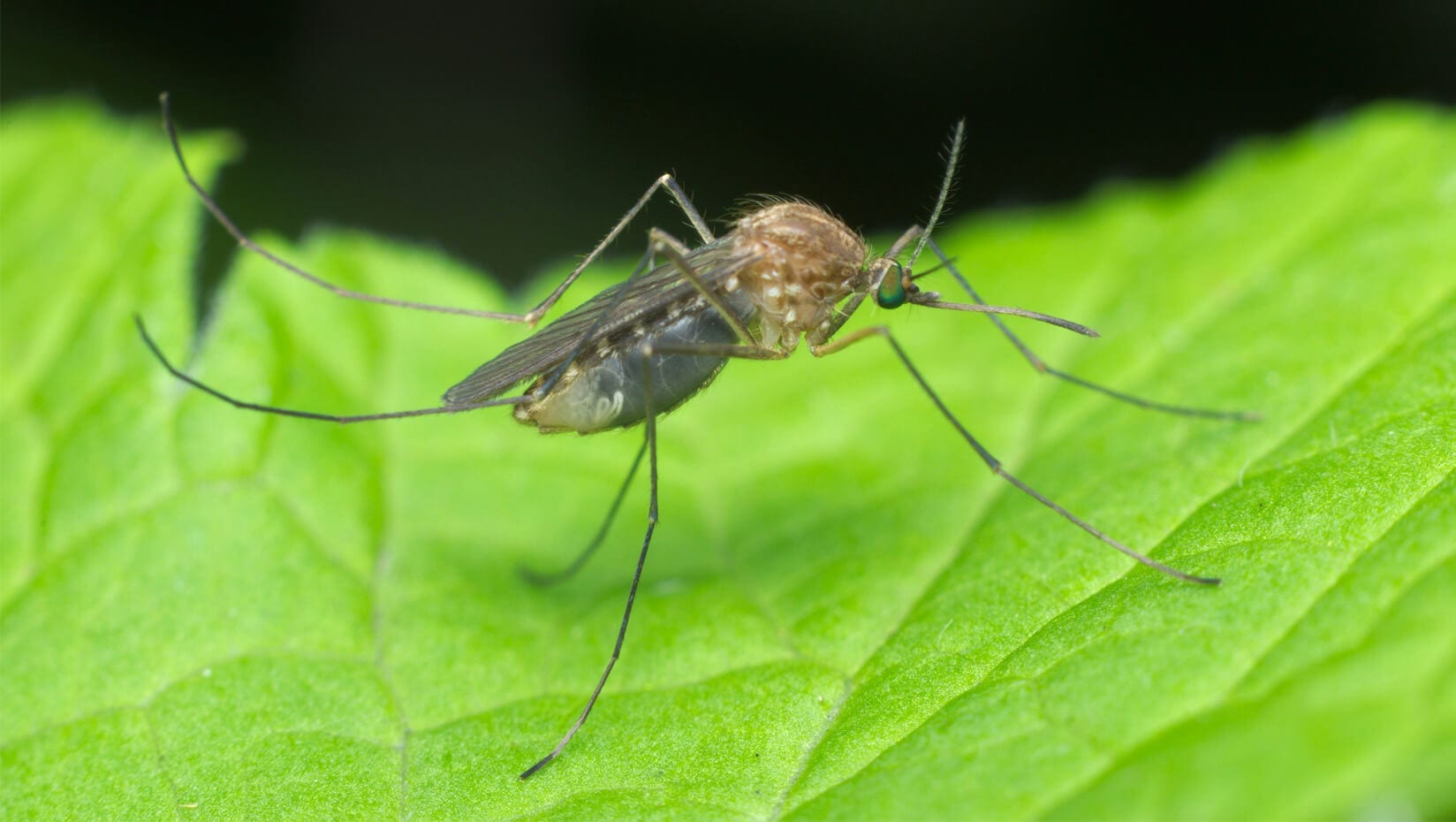
It’s a breakthrough in the fight against disease-carrying mosquitoes.
Researchers have found a chemical that disables the part of the insect’s brain that smells humans. Future bug repellents based on the compounds could give people an invisibility cloak against the winged pests. We talked to a scientist who worked on the discovery to find out more.
There are three main ways that mosquitoes zero in on their targets. The strongest mosquito attractant is carbon dioxide (CO2), which the insects can detect from a distance of up to 20 to 30 meters. “The reason mosquitoes and other blood-feeding insects have evolved to detect CO2 is because every living vertebrate is going to produce a lot of CO2 as turbulent plumes,” said Anandasankar Ray, an entomologist at the University of California, Riverside. “It doesn’t just dissipate; the prevailing wind will carry it almost like cigarette smoke gets carried away.”
At closer range, mosquitoes can sense different odors that are emitted from the skin (human skin odor is mostly the byproduct of skin microbes, which break down sweat to produce smelly volatiles). Finally, mosquitoes can detect body heat. Some research has also suggested that mosquitoes are attracted to certain blood types, which may be mediated by different odor molecules, but the evidence for this idea is not robust, Ray told io9.
The Carbon Dioxide Conundrum
Given mosquitoes’ remarkable ability to detect CO2 from a great distance, scientists have focused on determining just how, exactly, the insects can sense the gas, in hopes of someday blocking the ability. What it boils down to, they found, is a class of olfactory sensory neurons called cpA, which are housed in the mosquitoes’ maxillary palps, a type of sensory organ between the antennae near the mouth. In 2011, Ray and his colleagues discovered that they could use certain chemical odors to overstimulate the cpA neurons, and disrupt mosquitoes from detecting CO2.
“We then started wondering what would happen if the [CO2-blocked] mosquitoes would come closer to us and go towards our feet or arms,” Ray said. Even though the mosquitoes can’t detect people from the carbon dioxide on their breath, they could still sense skin odor, allowing them to find their prey. So the team, as well as other research groups, decided to pinpoint receptors that pick up on skin odors.
Experiments have demonstrated that skin odor alone can draw in mosquitoes, and scientists found that some odors did activate certain receptors in mosquito antennae. But, strangely, researchers couldn’t tie the activation of these receptors to the mosquitoes’ attraction behavior. In every case, the insects’ CO2 receptors also needed to be activated with carbon dioxide to elicit the attraction behavior. This left everyone scratching their head, trying to figure out why activating just the antennae receptors didn’t work. “At that point we hit a roadblock,” Ray said.
The Latest on: Blocking mosquitoes’ detection system
[google_news title=”” keyword=”Blocking mosquitoes’ detection system” num_posts=”10″ blurb_length=”0″ show_thumb=”left”]
via Google News
The Latest on: Blocking mosquitoes’ detection system
- Citronella Candles Don’t Really Work. Stop Buying Them.on May 6, 2024 at 6:55 am
A mosquito interprets the world through multiple chemical receptors, according to Laurence Zwiebel, the chair of biological science at Vanderbilt University. Essential oils block only a limited ...
- Malaria Newson May 2, 2024 at 5:00 pm
Apr. 1, 2024 — A group of researchers is calling on colleagues around the world to join them in what they call 'pathogen prospecting' by tracking down archival specimens of mosquitoes in museums ...
- Best Medical Alert Systems Of 2024on May 2, 2024 at 7:39 am
Medical alert systems can provide peace of mind and come in a variety of options, from wearable buttons to in-home units. Bay Alarm Medical SOS In-Home With Fall Detection is our top pick ...
- FLIR Systems,on April 29, 2024 at 5:00 pm
and markets sensor systems that enhance perception and awareness. The company's advanced thermal imaging and threat detection systems are used for a wide variety of imaging, thermography ...
- Expert sounds alarm as mosquito-borne diseases becoming a global phenomenon in a warmer more populated worldon April 24, 2024 at 3:08 pm
Researchers are fighting back with early warning systems that combine mosquito surveillance with climate forecasts to give local communities time to prepare and protect themselves. **ECCMID has ...
- Protester charged after blocking entrance to Elbit Systems appears in courton April 2, 2024 at 9:50 am
NO MORE MONEY FOR ISRAEL CRIME. ON MARCH 22ND, GAGNON WAS ONE OF EIGHT PEOPLE ARRESTED OUTSIDE THE ELBIT SYSTEMS PLANT IN MERRIMACK. THE PROTEST BLOCKED THE MAIN ENTRANCE TO THE DEFENSE CONTRACTOR ...
- Window System with Mosquito Net - HYFLYon December 19, 2023 at 9:08 pm
HYFLY from Hyline offers a mosquito net for natural ventilation ... while seamlessly integrating into the window frame. The system is available both in a manual and automatic version, both ...
- Review: Wireless Intrusion-Detection/Prevention Systemson December 15, 2023 at 1:51 pm
Mainstream wireless infrastructure vendors, including Aruba Networks, Cisco Systems, Meru Networks ... multiple VLANs to test wire-side detection and blocking. » We set a WAN connection ...
- The Best Robot Vacuumson October 8, 2023 at 3:15 am
It also allows you to block off areas that you don’t want cleaned. While Roborock’s obstacle-detection system isn’t perfect, the Q5 avoided hurdles more effectively than the other robots we ...
- Unmanned vehicles surveil dengue-spreading mosquitoes in sewerson June 11, 2023 at 5:00 pm
To overcome this, the researchers developed a device that can monitor mosquito density in sewers. The device combines a crawling robot, wire-controlled cable car and real-time monitoring system in an ...
via Bing News










